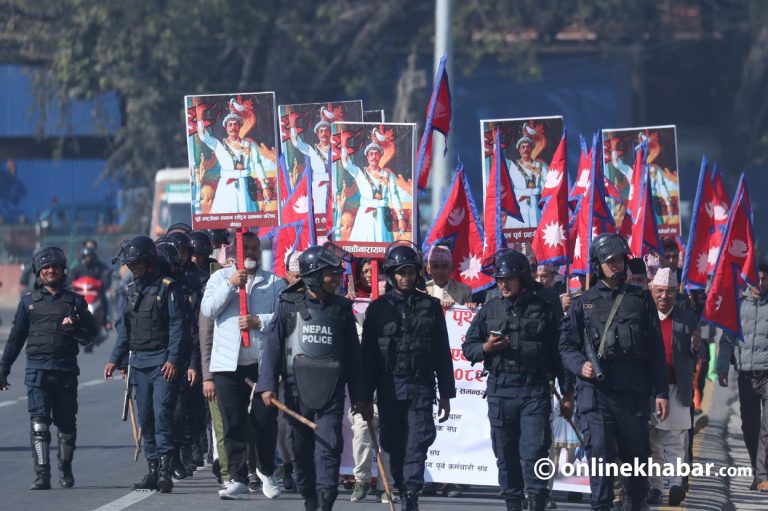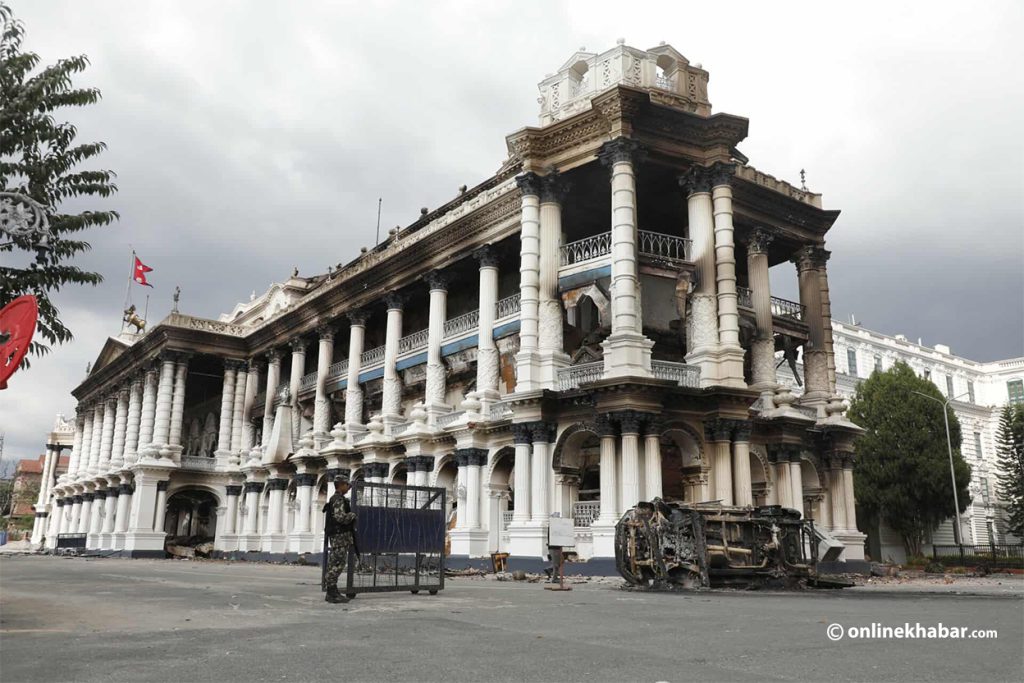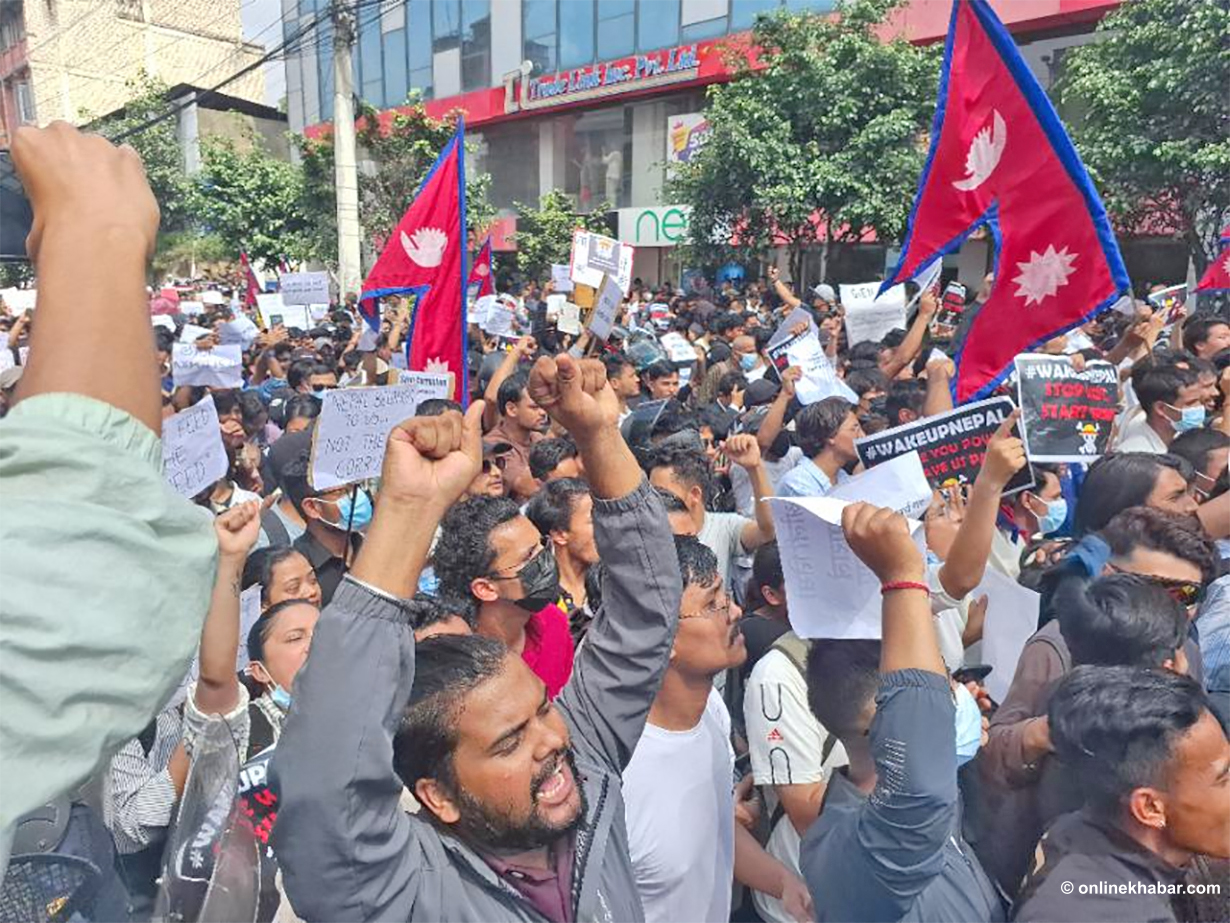The Supreme Court of Nepal, on December 21, 2020, called for tenders for the construction of its new building. With everyone’s eyes on the tender, the criteria to be eligible were quite tough. The tender had asked contractors who had worked on a double-basement building as it set a budget of Rs 4.20 billion for the building’s construction.
These tenders are normally applied by foreign companies after they get certification from the Nepali embassy where the foreign contractor is from. However, in this case, this was made ineligible, as the tender call disallowed a Nepali-foreign JV company to apply.
Normally, after a tender of over Rs 1 billion is called, contractors are given a time of 45 days to apply. But for this tender, they were given only 30 days. Smelling something wrong, the Federation of Contractors’ Associations of Nepal (FCAN) asked it is changed as it wrote to the Supreme Court. However, the news of Kalika-Binapur-Samanantar JV getting the contract started to appear on various news portals.
Four companies had applied for the tender, but, as it said in the news, the contract was given to Kalika-Binapur-Samanantar JV. The rest had been disqualified as they did not fit the criteria. Kalika-Binapur-Samanantar JV became the sole candidate to get the contract as after the financial assessment, it was found out that it had quoted 0.99 per cent less than the estimated cost.
As this happened, people started to question if Kalika-Binapur-Samanantar knew how much they needed to bid to get the contract.
This is not the first case of its kind and it will not be the last as there are many cases that prove that the contractors get insider information while bidding for government projects. In fact, many government officials issue the call for tenders targeting a particular bidder. But, as the law forces them to call tenders, they only do that for formality while already assigning them to their closed ones misusing their power and incurring a huge loss to the state.
Controlled competition

Former secretary Madhu Prasad Regmi says in the bad, things were worse as big contractors would use goons to block small contractors from even applying for tenders. But, now, as bidding has gone digital, the big contractors have been taking the help of government officials during the bidding process.
Previously, big projects used to be split and given to contractors who had already worked on similar projects. But, over the past few years, these contracts, even the small ones, have been given to the same big contractor.
Now, medium and small contractors, who have not done much work have started to get tenders after seeking help from officials from government offices as this is seen at both central and provincial levels of the government.
The trend of the government officials using documents sent by contractors previously to lay down the criteria for the bid has started since the Covid-19 pandemic. This has resulted in only a few contractors being eligible enough to bid for the projects, says Ravi Singh, the FCAN president.
Last year, the Department of Railways had called for tenders for the Kakarbhitta-Inaruwa section of the proposed railway line. The project would give work to 150 contractors and Singh himself was also conspiring with the government to manipulate the bidding process. But now, the same Singh is shocked at the manner in which even small contracts are being given to people close to concerned government officials today.
“To ensure they don’t get a lot of bids, rural municipalities are also asking for prior experience in stonework when all the project needs experience in building a house. There are only a few companies who have experience in stonework,” says Singh. “Projects under the central government have always been done in this way, but now it’s everywhere.”
The trend of disqualifying contractors with the same experience as the ones who get it are on the rise lately. There have been numerous examples of one company being left to grab the contract after the concerned government office conducts the technical assessments.
Help from the top

With rising examples of contracts being given to contractors based on a nexus, there has been a number of complaints filed at various government organisations. But, rarely has anyone been punished nor has any of these projects been stalled. Interestingly, sitting prime ministers have been seen defending projects given to contractors without competition.
The Public Accounts Committee in the House of Representatives on April 1 had directed the army to cancel the bidding process in the second package of the tunnel and bridge construction under the fast track project after reports of irregularities. However, the army issued a notice calling the letter of intent from the contractor for the tunnels and bridges. Earlier, the army had qualified only one company, Poly Changda Engineering Co Ltd of China, among 21 bidders for the construction work. The company has won a contract of Rs 20.85 billion.
Nepal Army was questioned after it awarded the contract to the company even though it had awarded the first phase of the contract to another Chinese company, China State Construction Engineering Company. The parliamentary committee had asked the army to follow the public procurement act and be transparent.
But, the army’s spokesperson, Santosh Ballav Paudyel in reply says the committee had ordered the government to do so and not Nepal Army. As the army did not get any such orders from the government, it carried on with the process and handed the Chinese company the project, he argues. Interestingly, then Prime Minister KP Sharma Oli, who was also serving as the defence minister, was irritated by the decision that was made by the committee.
“They should not stop projects just because they are a parliamentary committee. If they find problems they should go to the concerned offices and ask why the problem arose. If they cancel projects like these, all projects will be suspended,” Oli had said speaking at a programme.
A mere formality

Over the last few years, there has been a lot of inappropriate nexus between contractors and the government when it comes to projects related to drinking water and sewage. The number of contractors who have the experience of doing these projects is few and far between in Nepal. Kalika and Sharma constructions, which worked on the Melamchi project with foreign companies, are the two who are being given contracts related to drinking waters and sewage throughout the country.
As rules state that projects worth Rs 1 billion or more need a foreign contractor, the projects are being separated into two or three and being handed over to the same companies over and over again.
Sharma-Diwa JV got the Rs 445.9 million contracts to lay drinking water and sewage pipelines in Kanchanrup, Saptari. In Panchthar, Kalika-Ashish-Kankai JV got the Rs 670.8 million contract to lay the drinking water pipeline in parts of the district. There were no companies that were eligible to apply to be a part of these projects.
The Department of Tourism and the Department of Irrigation have also been conspiring with contractors while handing out projects as they have been making sure that only the companies that they know get the project.
The companies that have been getting these contracts are Kalika, Rasuwa, Kumar Shrestha, Lumbini, Lama, Samanantar and a few mining companies.
Following what is happening at the centre, local governments are also following suit as they have been handing out contracts to people they know. An example was the construction of a 15-bed hospital in Bardgoriya rural municipality where the criteria were so high that only a few companies were eligible. For the construction of the hospital, the local government had asked for contractors who had experience in interlock cable concrete blocks.
Government losing billions

The exact loss to the government due to this trend is unclear, but if projects that have been under scrutiny are to be taken, the government wastes tens of billions of taxpayers’ money by handing out projects through a ‘setting’.
In the past, the contractors would quote around 20 to 30 per cent less of the estimated process, but these days, most bids are given to companies who bid 2 per cent less than the estimated cost, resulting in billions of rupees in losses for the government.
Contractors say a recent project in Lumbini, because it was awarded based on personal contacts, will incur the government a loss of Rs 1 million at least. The project was given a Rs 3 billion budget, but it could be completed around 20 per cent cheaper due to its location, says a contractor. But with no competition during bidding, the government will not be saving any money on the project.
The case is similar for the Supreme Court building whose estimated cost was Rs 5.22 billion. A bid of Rs 5.18 billion was accepted, but various sources say that it could have been built under Rs 4 billion.
Transparency and good governance taking a backseat

Experts in the field of public procurement say that transparency and good governance are being ridiculed due to this. They say the taxpayers are being cheated as the government has failed to regulate and manage these bids.
Former secretary Regmi says with monitoring bodies keeping mum, contractors feel they are untouchable as most have powerful connections within the ruling parties.
“This will cause multi-dimensional problems in the future,” says Regmi. “Handing out projects based on relation and settings will have a bad impact on the projects as people who give them the projects will rarely question these contractors.”
He even says some of these contractors have a say in most policy decisions, which, if it continues, will be detrimental for Nepal.
Legal expert Suresh Pradhan says this trend needs to stop as none of the rules mentioned in the Public Procurement Act is being followed. As these bids are only for formality’s sake, the entire premise of the act is affected.
“This is dangerous because this is only beneficial for one or two persons. It’s a shame that things like these are openly happening in Nepal,” says Pradhan.

























